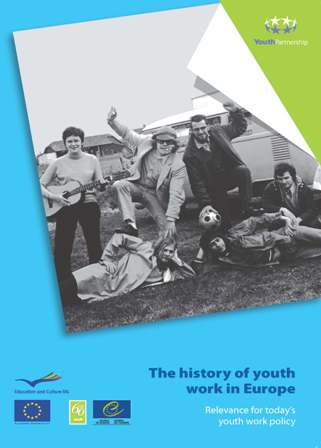"The history of youth work in Europe and its relevance for today's youth work policy"- 3rd workshop
"The history of youth work in Europe and its relevance for today's youth work policy" - 3rd workshop
4th to 7th October 2011 in Tallin (Estonia)
Agenda
Tuesday, 04 October 2011
- Late afternoon session, followed by a welcoming reception at the House of Brotherhood of Blackheads.
- Welcome by Head of Estonian MoER Youth Policy division, Anne Kivimäe
- Introduction and presentation of the programme by Jan Vanhee and Hanjo Schild
- Filip Coussee: Lessons learned from the past: Workshops I and II and the Ghent conference on History of Youth Work
- Kristina Mänd: Youth work and its place in the Third Sector
Wednesday, 05 October 2011
- Morning session
- Edgar Schlümmer: The History of Youth Work in Estonia
- Juha Nieminen: The History of Youth Work in Finland
- Chair: Howard Williamson
- Afternoon session
- Torbjorn Forkby: The History of Youth Work in Sweden
- Ralph Schroeder: The History of Youth Work in Luxembourg
- Chair: Arturas Deltuva
- Dinner and non-formal activity
Thursday, 06 October 2011
- Morning session
- Jorge Orlando: The History of Youth Work in Portugal
- Sorin Mitulescu: The History of Youth Work in Romania
- Dora Giannaki: The History of Youth Work in Greece
- Chair: Leena Suurpäa
- Afternoon session
- Arturas Deltuva: The History of Youth Work in Lithuania
- Areg Tadevosyan: The History of Youth Work in Armenia
- Chair: Lasse Siurala
- Dinner and non-formal activity
Friday, 07 October 2011
- Morning session
- Conclusions, summing up, follow up
- Howard Williamson: first summary by rapporteur
- NN: reflections from the Estonian Ministry
- Discussion: Lessons for future - conceptional development and recognition of youth work
- Chairs: Jan Vanhee and Hanjo Schild
- Conclusions, summing up, follow up

Edited by Griet Verschelden, Filip Coussée, Tineke Van de Walle and Howard Williamson.
Council of Europe, 2009 978-92-871-6608-1
Youth work is a polyvalent and multi-faceted practice. It takes place in a wide range of settings, varies from unstructured activities to fairly structured programmes, reaches a diverse array of young people, touches upon many different themes and cuts across several other disciplines and practices. This versatility is one of the strengths of youth work, but at the same time it may lead to fragmentation and product vagueness.
In this book we take a historical perspective that aims to identify the close links between youth work developments and broader social, cultural and political developments. What are the beliefs and concepts that underpin youth work? How do they relate to the recurrent youth work paradox, that youth work produces active and democratic citizens but at the same time seems ineffective for young people who are excluded from active citizenship? Tracing back the roots of youth work and identifying different evolutions within and between countries help to initiate a fundamental discussion on modern-day youth work identity and to cope in a constructive way with the recurrent paradoxes of youth work.
The different authors highlight the youth work policies in Belgium (Flanders), Germany, England, Poland, Malta, France and Finland.
Download The history of youth work in Europe and its relevance for youth policy today >>
The history of youth work in Europe and its relevance for youth policy today is also available in Bulgarian
